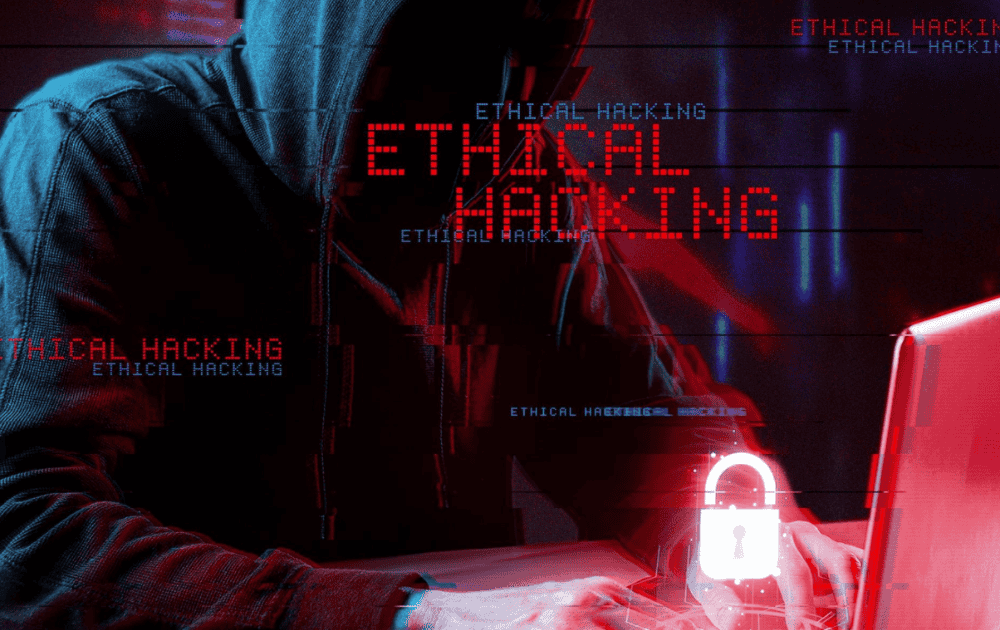Ethical hacking, also known as penetration testing or white-hat hacking, involves the intentional breaching of computer systems, networks, or applications to identify and fix vulnerabilities caused by cyber attacks. In contrast to malicious hackers who exploit vulnerabilities for personal benefit or harm, ethical hackers apply their expertise to strengthen security systems.
These professionals work within a legal framework and are often employed by organizations to test their defenses against potential cyber threats. By mimicking the techniques of cybercriminals, ethical hackers can pinpoint and resolve security gaps before they can be exploited.
Is Ethical Hacking Legal?
Yes, ethical hacking is legal when it is conducted with proper authorization and within the boundaries of the law. Ethical hackers, often known as "white hat" hackers, are hired by organizations to test and improve their security systems. These professionals follow a code of conduct and operate with explicit permission to identify vulnerabilities and prevent malicious attacks. However, hacking without authorization, even for ethical purposes, is illegal and can result in severe legal consequences. Therefore, ethical hacking is only legal when done under agreed-upon terms and in compliance with relevant laws.
The Role of Ethical Hacking in Cybersecurity
Cybersecurity is an ever-evolving field, with threats becoming more sophisticated daily. Ethical hacking plays a crucial role in safeguarding sensitive data, financial transactions, and organizational assets. Ethical hackers help protect against data breaches, ransomware attacks, and other cybercrimes by preemptively addressing vulnerabilities. Their work not only strengthens an organization's security posture but also builds trust among clients and stakeholders.

The 3 Different Types of Ethical Hacking
Ethical hacking is not a one-size-fits-all approach. There are various types of ethical hacking, each focusing on specific areas of vulnerability:
- Network Hacking: This involves analyzing networks to identify weaknesses in firewalls, routers, or communication protocols.
- Web Application Hacking: Focused on identifying flaws in web applications, this type of hacking ensures secure user experiences.
- System Hacking: This targets operating systems to detect vulnerabilities that could compromise an entire infrastructure.
- Wireless Network Hacking: Concentrating on Wi-Fi networks, ethical hackers test encryption protocols and authentication mechanisms.
Specializing in these areas, ethical hackers provide comprehensive security solutions tailored to organizational needs.
4 Skills Required for Ethical Hacking
To excel as an ethical hacker, one must possess a unique blend of technical and analytical skills. These include:
- Proficiency in Programming Languages: Understanding Python, C++, or Java is crucial for analyzing code and identifying vulnerabilities.
- Knowledge of Networking: Familiarity with TCP/IP, DNS, and subnetting is essential for testing and securing networks.
- Mastery of Tools: Tools like Metasploit, Wireshark, and Burp Suite are commonly used in penetration testing.
- Problem-Solving Abilities: Ethical hackers must think like cybercriminals to anticipate and counter potential attacks.
Certifications like Certified Ethical Hacker (CEH) or Offensive Security Certified Professional (OSCP) further validate these skills.
Legality of Ethical Hacking
The legality of ethical hacking depends on the intent and authorization behind the activities. Ethical hacking is legal when conducted with explicit permission from the organization or individual who owns the system being tested. This is often formalized through contracts or agreements known as "penetration testing agreements." These documents outline the scope of testing, authorized methods, and liability protections.
In contrast, unauthorized hacking, even with good intentions, is considered illegal and can result in severe legal consequences. Laws like the Computer Fraud and Abuse Act (CFAA) in the United States clearly distinguish between authorized and unauthorized hacking activities.
Legal Frameworks Governing Ethical Hacking
Ethical hackers operate within strict legal boundaries to ensure their activities are lawful. These frameworks include:
- Computer Fraud and Abuse Act (CFAA): Enacted in 1986, this U.S. law criminalizes unauthorized access to computer systems but allows authorized security testing.
- General Data Protection Regulation (GDPR): In the European Union, ethical hackers must comply with GDPR to ensure personal data is not exposed during testing.
- Bug Bounty Programs: Many organizations, including tech giants like Google and Facebook, have programs inviting ethical hackers to discover and report vulnerabilities.
Adhering to these laws and programs, ethical hackers can perform their duties responsibly and legally.
Risks and Ethical Considerations
While ethical hacking is legal, it is not without risks. A poorly conducted penetration test could inadvertently disrupt operations or expose sensitive data. This highlights the importance of hiring certified professionals who follow ethical guidelines. Ethical hackers must:
- Obtain written consent before testing.
- Clearly define the scope and limits of their activities.
- Avoid accessing unnecessary or sensitive information.
These precautions ensure ethical hacking remains a safe and effective practice.
How to Become an Ethical Hacker
Becoming an ethical hacker requires a combination of education, certifications, and practical experience. Here’s a roadmap to start your journey:
Step 1: Build a Strong Technical Foundation
Develop your skills in programming, networking, and operating systems. A degree in computer science or cybersecurity can be beneficial.
Step 2: Obtain Relevant Certifications
Certifications like CEH, OSCP, or CompTIA Security+ validate your skills and make you a competitive candidate in the field.
Step 3: Gain Hands-On Experience
Participate in capture-the-flag (CTF) competitions or join online platforms like Hack The Box to practice your skills.
Step 4: Network with Industry Professionals
Attend cybersecurity conferences and connect with professionals to learn about job opportunities and trends in ethical hacking.
With dedication and continuous learning, you can establish a successful career as an ethical hacker.

The Future of Ethical Hacking
As technology advances, so do the methods of cybercriminals. This makes ethical hacking more relevant than ever. The rise of artificial intelligence, the Internet of Things (IoT), and quantum computing will create new challenges and opportunities for ethical hackers. Professionals in this field must stay updated with emerging technologies and adapt their strategies to combat evolving threats.
Organizations must also invest in ethical hacking as part of their cybersecurity strategies. By doing so, they can protect themselves against financial losses, reputational damage, and legal liabilities.
Ethical hacking is a powerful tool for enhancing cybersecurity. When performed responsibly and within legal boundaries, it protects organizations from cyber threats and strengthens trust among stakeholders. The demand for ethical hackers continues to grow, making it a promising career path for those with the right skills and dedication.
Whether you’re an organization looking to secure your systems or an aspiring ethical hacker, understanding the principles, legality, and importance of ethical hacking is essential for navigating the digital landscape safely. At LK Tech, we offer top-notch IT support tailored to your unique needs, helping you safeguard your systems with cutting-edge solutions and expert guidance. If you're seeking reliable IT services in Cincinnati, don’t forget to reach out to us today to discover how we can assist in protecting your digital assets and ensuring peace of mind!


